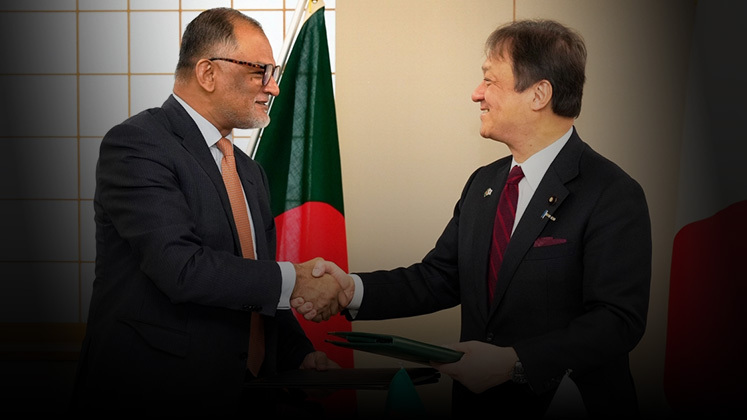FW
As the global textile market approaches a projected $1 trillion valuation by 2030, the sector is witnessing a decisive shift toward specialized contract environments. Leading this transformation, Messe Frankfurt has announced a landmark partnership with Strive Exhibitions to co-locate Hospitality Interiors Europe (HINT) alongside Heimtextil 2027. This alliance integrates high-end design concepts with technical textile innovation, addressing a hospitality segment currently expanding at a 6.18 per cent CAGR. By 2027, the collaboration will provide a dedicated hall for decision-makers across resorts, wellness, and care facilities, effectively merging material science with experiential architecture.
Synergy in high-end design systems
The partnership moves beyond traditional trade frameworks by creating a curated ecosystem for the luxury contract business. In an era where 84 per cent of hospitality leaders identify textiles as primary drivers of guest satisfaction, the co-location offers architects and developers direct access to performance-driven fabrics and circular materials. Olaf Schmidt, Vice President Textiles & Textile Technologies, Messe Frankfurt, emphasizes, this shared space for innovation will unlock new value streams. For the global textile industry, which is increasingly navigating the EU’s Carbon Border Adjustment Mechanism (CBAM), this platform serves as a vital proving ground for sustainable and smart textile integration.
The 2026 engagement roadmap
A strategic precursor to the full 2027 launch, Heimtextil 2026, to be held from January 13–16, 2026 will feature an exclusive HINT Lounge in Hall 3.1. This early-access hub is designed to facilitate networking between manufacturers and designers before the official parallel staging. Toby Walters, CEO, Strive Exhibitions, notes, HINT will become the global meeting place for a community spanning hotels to extended stay markets. With Messe Frankfurt reporting record socio-economic impacts of €3.7 billion annually, this expansion into high-growth hospitality niches is set to redefine the competitive landscape of the international textile trade.
As the world’s largest trade fair organizer with its own grounds, Messe Frankfurt operates over 50 textile fairs worldwide. Its flagship brand, Heimtextil, serves key markets in Europe, Asia, and the Americas, driving the ‘Texpertise’ global network.
The group maintains a robust profitable course, projecting sales over €766 million for the current fiscal year. Strategically, it is focusing on AI-driven design and circular economy frameworks to sustain its 800-year legacy of connecting global markets.
In a decisive move to consolidate its position within the $126 billion global intimate apparel sector, the newly established Crown Brands Group has completed the acquisition of Hanky Panky. Executed in partnership with Rafar Group - the parent entity of Gelmart International - the transaction marks the first ‘anchor asset’ for Crown’s heritage-focused investment vehicle. Backed by G72 Holdings, the family office of Raymond Gindi, Co-founder, Century 21 Stores, the group intends to leverage Hanky Panky’s immense brand equity, which currently sees one ‘Signature Lace Thong’ sold every 10 seconds globally, to spearhead a diversified consumer goods portfolio.
Operational synergy and category diversification
The alliance introduces a sophisticated dual-management structure designed to scale the brand's footprint while preserving its 48-year design legacy. Rafar Group will function as the core operating partner, utilizing over seven decades of manufacturing expertise to oversee product development, distribution, and e-commerce. Meanwhile, Crown Brands will steer global licensing and brand strategy. This operational transition occurs as the lower innerwear segment is projected to grow at a 7.8 per cent CAGR through 2030, driven by a sharp consumer shift toward technical comfort and body-positive sizing. To capture this momentum, the partners plan to aggressively expand Hanky Panky’s physical presence beyond its current 2,500 wholesale points, including the launch of standalone flagship stores in major US metropolitan hubs.
Heritage preservation in an evolving market
Despite the change in ownership, the brand's foundational ‘DNA’ remains a priority. Gale Epstein and Lida Orzeck, Co-founders will transition to the Board of Directors, ensuring continuity in the brand's commitment to ‘made in the USA’ quality and sustainable lace production. This strategic retention is critical as the industry faces increasing competition from digitally native entrants and fluctuating raw material costs. Raymond Dayan, CEO, Crown Brands Group, emphasized, the deal sets a rigorous standard for future acquisitions, combining ‘operational excellence with authentic heritage’ to navigate the structural rewiring of the global luxury intimates market.
Legacy intimate apparel specialist Hanky Panky is a premium New York-based intimate apparel brand famous for inventing the ‘World’s Most Comfortable Thong.’ Distributing across 70 countries through high-end retailers like Nordstrom, the brand is now targeting a $100 million+ revenue milestone through aggressive store openings and global licensing under Crown Brands Group ownership.
Associated British Foods (ABF) has lowered its annual profit forecasts as its cornerstone retail brand, Primark, battles a widening performance gap between the UK and mainland Europe. In a trading update released on January 8, 2026, the conglomerate revealed, overall group adjusted operating profit is now expected to fall below last year's £1.73 billion. While Primark remains a high-street staple, its reliance on brick-and-mortar stores has left it exposed to shifting footfall patterns and a sharp downturn in consumer sentiment across the Eurozone.
The dichotomy of high-street performance
The festive period underscored a striking regional divide. In the UK, Primark managed to expand its market share with an encouraging 3 per cent sales growth (1.7 per cent like-for-like) during the 16 weeks to January 3, 2026. This resilience was boosted by a strong performance in womenswear and the expansion of digital initiatives such as Click & Collect. Conversely, like-for-like sales in continental Europe - representing 49 per cent of Primark's footprint - plunged by 5.7 per cent. To protect inventory health amidst this slowdown, management was forced into aggressive markdown strategies, significantly diluting operating margins to a projected 10 per cent for the full year. Strategic divergence and the spin-off review
The retail sector's volatility has intensified the debate surrounding ABF’s diversified structure. The group is currently conducting a comprehensive review of a potential Primark spin-off, a move that would separate the fashion giant from ABF’s food and ingredients divisions. Despite the recent profit warning, Joana Edwards, Interim Finance Director, confirmed, the core rationale for the separation remains unchanged, with a final decision expected by April 2026. This strategic crossroads comes as Primark looks to accelerate its US expansion, where sales grew by 12 per cent despite a volatile footfall environment.
Primark is a leading international clothing retailer operating 476 stores across 18 countries. Known for ‘amazing fashion at amazing prices,’ the brand is currently pivoting toward a hybrid digital model while aggressively expanding in the US and Gulf markets. Despite current margin pressures, Primark remains the primary profit engine for its parent company, Associated British Foods, which was founded in 1935.
As the National Textile Ministers’ Conference concludes in Guwahati today, the Ministry of Textiles has officially launched the District-Led Textiles Transformation (DLTT) initiative to transition the sector from bulk commodity spinning to high-value ‘technical’ yarns and smart fabrics, targeting the creation of 70 million jobs by 2031.
To support this, the government extended the Production Linked Incentive (PLI) Scheme deadline to March 31, 2026, specifically to capture fresh investments in man-made fibres (MMF) and technical textiles.
However, the industry faces immediate turbulence. Exporters informed a Parliamentary panel, order books for the March quarter could collapse by 50 per cent due to the 50 per cent tariff currently imposed by the United States. Furthermore, a regional trade rift has widened as the Bangladesh Trade and Tariff Commission considers a 20 per cent safeguard duty on Indian yarn to protect its local spinners. Giriraj Singh, Textile Minister, emphasized, value addition is no longer optional; it is the primary shield against global tariff volatility. In response, firms like RSWM have integrated AI-driven sustainability platforms this week to meet stringent European transparency mandates, while Yajur Fibers is finalizing its Rs 120.41 crore IPO to fund a specialized linen yarn facility in Madhya Pradesh.
Yajur Fibers is an established manufacturer specializing in ‘cottonized’ bast fibres, including flax, jute, and hemp. Serving a global B2B clientele, the company is currently expanding into 100 per cent wet-spun linen yarn through its new Ujjain unit. With a legacy dating to 1980, it aims to capitalize on the rising demand for sustainable, plant-based textiles.
Skims is aggressively expanding its physical presence in Mexico, transforming the country into its primary launchpad for Latin American expansion. Boosted by a $5 billion valuation following a recent $225 million funding round led by Goldman Sachs Alternatives, the brand has shifted from a digital-first model to a sophisticated omnichannel strategy. Through an exclusive partnership with Retail Fashion Group - a subsidiary of the luxury powerhouse Grupo Sordo Madaleno (SOMA) - Skims has established a network of four permanent stores, including its bold architectural flagship in Mexico City’s Artz Pedregal. This move effectively positions Mexico as the only market in the region to integrate high-touch physical retail with localized digital commerce.
Capitalizing on high-growth activewear segments
The expansion coincides with a broader diversification into high-margin categories, most notably the NikeSkims collaboration. Market analysts project this partnership could capture 8.2 per cent of the global activewear market by 2026, as consumers increasingly seek technical fabrics that transition between performance and lifestyle. In Mexico, the inclusion of Skims Mens and technical loungewear in physical stores has allowed the brand to tap into a wider demographic, driving net sales toward a projected $1 billion milestone for 2025. This localized ‘bricks-and-mortar’ approach addresses a key opportunity in the $155 billion global athleisure sector, where physical fitting remains a critical driver for shapewear conversion.
The roadmap to global omnichannel leadership
As Skims prepares for a potential IPO, its Mexican operation serves as a blueprint for international ‘franchise-plus’ models. By leveraging SOMA’s deep real estate expertise, the brand mitigates the logistical challenges of Latin American retail while maintaining a premium aesthetic. Becoming a global omnichannel retail brand is our next chapter, notes Kim Kardashian, Co-founder, emphasizing a move toward a predominantly physical business. With plans to launch Skims Beauty and Fragrance in 2026, the Mexican storefronts are being positioned not just as clothing outlets, but as multi-category wellness hubs designed to secure long-term community loyalty across the Americas.
A solutions-oriented apparel brand co-founded by Kim Kardashian and Jens Grede, Skims is focused on inclusive shapewear, loungewear, and activewear. It operates primarily in the US and Mexico, with a massive UK flagship slated for Summer 2026. Following a 2025 capital raise, the brand is targeting global dominance through category expansion into beauty and technical sportswear.
High-performance textile landscape is undergoing a significant geographic and sectoral shift this January as powered by Performance Days, the Functional Fabric Fair launches its first-ever Winter Edition in Orlando, Florida. Strategically co-located with the PGA Show at the Orange County Convention Center on January 21–22, 2026, the event marks a major integration of technical material innovation into the $102 billion global golf industry. With over 90 curated exhibitors, the fair aims to bridge the gap between traditional golf aesthetics and the rigorous technical demands of modern outdoor and activewear.
Circularity and the rise of textile-to-textile recycling
A primary commercial driver for this edition is the rapid maturation of the textile recycling market, which is projected to grow from $1.7 billion in 2026 to $8.5 billion by 2035. The fair’s educational programming focuses heavily on Textile-to-Textile (T2T) recycling, a process essential for brands navigating new sustainability mandggates. Industry leaders are presenting advancements in chemical and enzymatic recycling that allow for high-quality fiber recovery from complex blends - traditionally a major hurdle for performance apparel. The transition to a circular model is no longer optional; it is a prerequisite for Tier-1 global partnerships, noted a sector analyst during the preliminary Trend Forum.
Engineering the future of performance golf wear
The synergy between the Functional Fabric Fair and the PGA Show reflects a broader trend where performance-driven and eco-friendly apparel accounted for 22 per cent of new product launches in 2025. Golf brands are increasingly adopting technologies like UV protection, cooling fibers, and PFC-free water repellency once reserved for extreme mountain sports. With North America dominating 38.5 per cent of the golf apparel market, the Orlando debut provides a critical sourcing node for designers. By placing vetted global suppliers directly in front of the golf industry’s largest buying cohort, the event facilitates a more efficient supply chain, allowing brands to implement sustainable innovations at scale without compromising the "hand-feel" or durability expected by the premium consumer.
Functional Fabric Fair is a trade-exclusive sourcing platform dedicated to high-performance functional fabrics, finishes, and trims. It serves the outdoor, activewear, and lifestyle markets, focusing on curated mills that meet strict sustainability and performance criteria.
In a decisive move to address the challenging economic landscape in the world’s second-largest economy, IKEA China has announced the closure of seven large-format stores effective February 2, 2026. The restructuring targets sites in secondary markets and suburban districts, including Shanghai Baoshan, Guangzhou Panyu, and Harbin, as the retailer grapples with a prolonged property slump that has dampened furniture demand. As home prices declined by nearly 10 per cent in 2025 and new home sales projected to decline by another 15 per cent, the Swedish giant is shifting its capital from expansive warehouses to high-density urban centers and digital flagships.
Precision penetration in Tier-I hubs
Rather than a full-scale withdrawal, IKEA is shifting to ‘precise cultivation,’ committing 160 million yuan in FY26 to enhance affordability through strategic price investments. The company plans to open more than 10 small-format ‘Plan and Order’ points over the next two years, specifically targeting Beijing and Shenzhen. A new urban outlet is slated for Dongguan this February, followed by a launch in Beijing’s Tongzhou district in April. This model aims to reduce logistics overhead while meeting the instant-delivery expectations of Chinese urbanites, a market where IKEA’s online business now accounts for over 25 per cent of total revenue.
Digital synergy and omnichannel integration
Launched in August 2025, the retail giant’s partnership with JD.com has become a cornerstone of its resilience strategy, enabling rapid fulfillment across major metropolitan areas. Despite the store closures, IKEA’s omnichannel visitors rose 4.7 per cent to 477 million in the last fiscal year, signaling that while physical footprints are shrinking, brand engagement is deepening digitally. The retailer now focuses on being closer to the consumer through a mix of curation and rapid logistics, notes a market analyst. By integrating its presence on Tmall and JD.com with physical pickup points, IKEA is navigating a supply-demand mismatch that has seen local online furniture brands erode the market share of traditional blue-box outlets.
As a leading global home furnishing retailer, IKEA provides affordable, functional design across 34 remaining physical outlets in mainland China. The brand is currently focusing on ‘Life at Home’ innovations and sustainable, localized product lines to drive a 7 per cent–9 per cent projected revenue recovery in FY2026. Since entering China in 1998, IKEA has evolved from a suburban destination to an omnichannel lifestyle platform.
Vietnam’s textile and garment industry concluded 2025 with an export turnover of approximately $46 billion, marking a 5.6 per cent Y-o-Y increase. While this performance solidifies the nation’s status as the world’s third-largest exporter - trailing only China and Bangladesh - the final figures fell slightly short of the initial $48 billion industry target. This marginal shortfall is attributed to significant international policy transitions and a regime of aggressive US tariffs that disrupted seasonal order flows. Despite these macro-volatilities, the sector maintained a robust trade surplus of $21 billion, reaffirming its position as a primary pillar of the national trade balance.
Divergent trends in yarn and apparel
A notable trend in the 2025 data is the divergence between finished goods and raw materials. Apparel shipments dominated earnings, contributing roughly $38 billion to the total. Conversely, the yarn segment faced intense downward pressure; while export volumes rose, the total value of yarn exports declined. This ‘volume-value gap’ reflects a surplus of supply in regional spinning markets and stiff price competition from China and India. The current landscape forces us to shift from a high-volume model to value-driven manufacturing, stated Truong Van Cam, General Secretary, Vietnam Textile and Apparel Association (VITAS). This shift is evident in the 2026 outlook, where many enterprises have secured orders through Q1 by focusing on higher-margin, specialized technical textiles.
Strategic sourcing and the green transition
The industry is proactively preparing for a high-output 2026, evidenced by a sharp year-end increase in cotton and yarn imports. With a domestic localization rate now reaching 52 per cent, manufacturers are still importing nearly 70 per cent of high-grade raw materials to meet stringent rules of origin required by the EVFTA and CPTPP. Opportunities in the coming year are concentrated in ‘green’ manufacturing. To retain Tier-I global clients, Vietnamese firms are investing heavily in water-recycling systems and solar-powered facilities. As 2026 begins, the sector is increasingly moving toward a ‘multi-pillar’ model, diversifying into technical sportswear and medical textiles to hedge against concentrated market risks in the US and EU.
In a strategic move to dominate the high-margin functional accessories sector, Centric Brands announced its acquisition of key assets from Fownes Brothers & Co this January. By absorbing the intellectual property and operational infrastructure of the 249-year-old glove specialist, the New York-based brand collective has secured lucrative licensing rights for Ugg, Timberland, and Cole Haan. Furthermore, Centric assumes critical private-label manufacturing agreements with performance giants Lululemon and The North Face. This consolidation arrives as the global winter wear market is projected to reach $447.8 billion by 2035, with North America alone accounting for over 42 per cent of the sector's current expansion.
Vertical integration and operational efficiency
The acquisition facilitates a direct infusion of technical expertise into Centric’s existing accessories platform. Andrew Gluckman joins as Senior Vice President and Division Head of Cold-Weather, ensuring that Fownes’ centuries-old ‘legacy of the loom’ is maintained within a modern, AI-driven corporate structure. Centric’s proprietary ‘Trend Pulse’ platform - which analyzes over 5 billion real-time data points - will now be applied to the newly acquired licenses to optimize inventory turnover and reduce time-to-market by an estimated 30 per cent. This data-led approach is essential to maintaining Centric's 2024–2027 roadmap, which targets a net sales compound annual growth rate of 6 per cent to 8 per cent, aiming for $3.4 billion in revenue by 2027.
Navigating volatility in a premium segment
Industry analysts suggest, the ‘Fownes Integration’ serves as a strategic hedge against the rising raw material costs currently squeezing the middle-market apparel sector. While domestic fiber availability fluctuates, the premium cold-weather category remains resilient, driven by a 15 per cent increase in consumer spending on high-performance lifestyle gear. Centric is positioning itself to leverage these world-class licenses across mass-market, specialty, and e-commerce channels. By consolidating these high-tenacity brands under one operational umbrella, Centric intends to deliver a 200 basis point annual margin expansion, proving that even in a volatile retail climate, category leadership and technical heritage remain the ultimate commercial currencies.
Centric Brands is a leading lifestyle collective that designs, sources, and distributes apparel and accessories across 100+ owned and licensed brands. Key categories include kids, men's, and women's apparel, with major licenses like Tommy Hilfiger, Calvin Klein, and Michael Kors.
The global textile and apparel industry is undergoing a structural realignment as New York cotton futures maintain an eight-week peak of 65.76 cents per pound as of early 2026. Fueled by supply constraints in the United States and Brazil, this upward trajectory is fundamentally altering procurement logic. Historically, apparel manufacturers migrated toward synthetic fibers to mitigate costs; however, current energy market volatility- linked to geopolitical instability in South America—has inflated polyester production expenses. Consequently, the price delta between natural and man-made fibers is contracting, prompting a strategic return to cotton-rich blends for high-volume retail lines.
Supply deficits drive strategic procurement
The MY 2025/26 is characterized by a ‘flight to quality’ amidst tightening availability. While global production is estimated at 119.8 million bales, the United States has seen harvested areas decline to nearly 1.45 million acre - a decade-level low - as growers prioritize higher-margin commodities like soybeans. This supply-side pressure is exacerbated by intensive short-covering in the futures market. Market analysts indicate that the current rally is less about a surge in consumer demand and more a result of institutional investors liquidating large short positions as they hedge against anticipated acreage reductions in key exporting regions.
Manufacturing localization and sector impact
For the $1.91 trillion global apparel market, these fluctuating input costs necessitate more resilient supply chains. Projected to reach $17.52 billion by 2033, the Indian sportswear segment serves as a primary example of this shift toward vertical integration. Brands are increasingly adopting localized manufacturing models to insulate themselves from currency fluctuations and logistical bottlenecks. This move towards ‘near-shoring’ is paired with a growing investment in regenerative agriculture, as retailers seek to secure long-term raw material supplies while meeting stringent global sustainability mandates.












